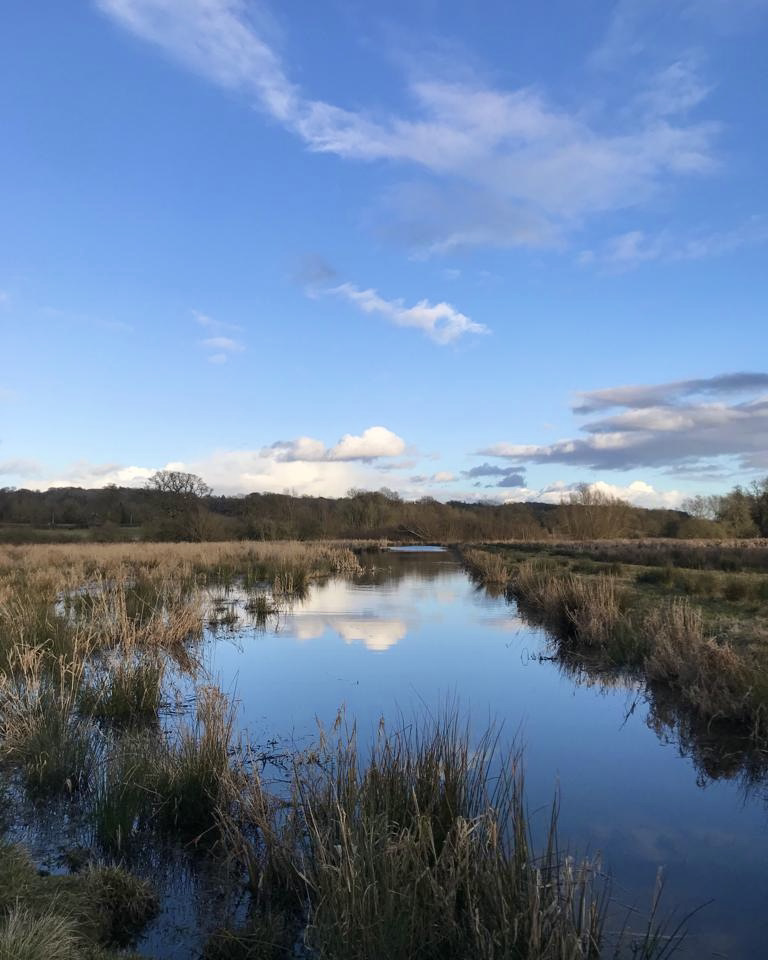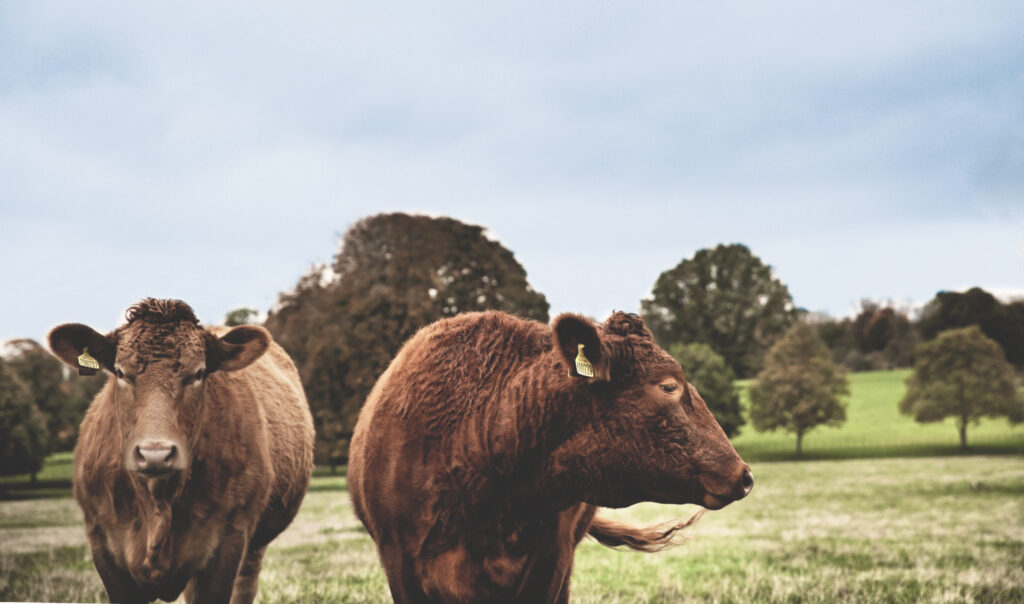
the creation of more nature-rich, water absorbent, carbon sequestering landscapes such as ours could help to counter the effects of climate change
STORIES · 20.02.22
Farming | Sustainability
We have been farming organically at Daylesford for over forty years, but it is only recently that terms such as ‘regenerative’ and ‘nature-based’ have made it into the mainstream thanks to an increased awareness about the climate crisis. The food and farming sector has a large carbon footprint – accounting for about a fifth of global emissions – so I thought it may be helpful to share a little more about sustainable farming at Daylesford, and how the creation of more nature-rich, carbon sequestering and flood mitigating landscapes such as ours could help to counter the effects of climate change.
Regenerative farming means doing so in a way that nourishes the health of our soil – leaving it in better condition that when we found it. Organic farming methods are particularly effective in drawing carbon down from the atmosphere, reversing some of the harm already caused by greenhouse gases and helping to slow global temperatures from rising. Healthy soil is a vital part of this – with the potential to store and sequester more carbon than the atmosphere and all the world’s plants and forests combined.
Unlike intensive methods that rely on chemical fertilisers, organic farming improves the diversity of soil through rotational and integrated cropping methods. When not being grazed by our pasture-fed cattle, we sow cover crops such as clover and vetch, which help to draw carbon and nitrogen – a natural fertiliser – out of the air and into the soil, improving its health and safeguarding many more growing cycles.
A healthy soil cycle is at the heart of the farm’s ecosystem, and our livestock also play a very important part in helping to maintain this. Nutrient recycling with the manure from our animals is one of the great values of mixed farming, so we spread their valuable muck back onto the fields to naturally fertilise our crops. This rich manure is extremely high in nutrients – a natural and organic way to nourish the soil and produce flavoursome and nourishing fruit, vegetables and cereals for us all to enjoy.

Besides farming to produce food in the most sustainable way, working to nurture and protect nature is also an important part of regenerative agriculture. Rather than squeezing every inch out of our land, we leave our woodlands for wildlife to enjoy, practice agroforestry and border our fields with seven miles of hedgerows. By only trimming them once every two years, biodiversity is encouraged to flourish – and it is wonderful to see and hear the results of this when the beehives are alive with activity and mallards, teals, sparrow hawks, kestrels, buzzards and many other birds are spotted enjoying our wetland habitat.
It is heartening to read that there are already 1,700 organic farmers across the UK registered with Soil Association Certification – covering around half a million hectares of farmland collectively. For the future of our planet and our grandchildren I hope that this movement continues to grow, and that our work at Daylesford might play a small part in this by inspiring more farmers to switch to nature-based methods.
To see a little more of what we do and meet some of our wonderful animals, you can enjoy daily updates from the farm via my Instagram page.
